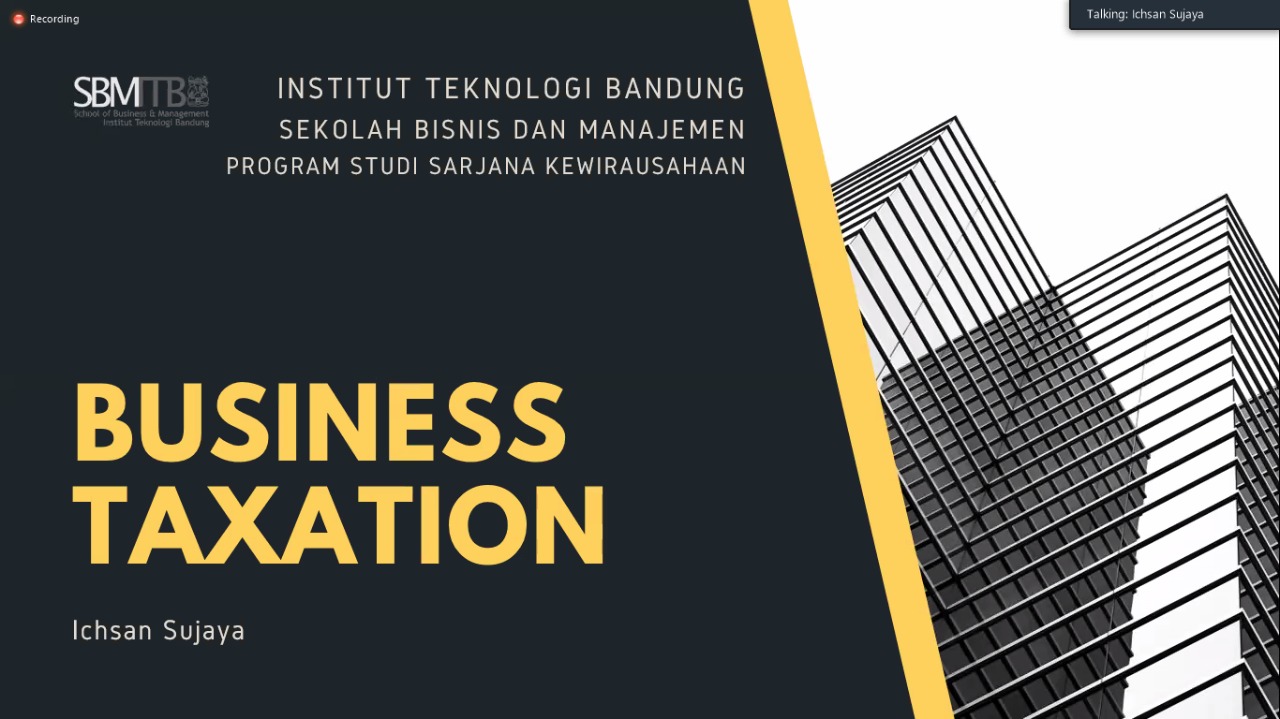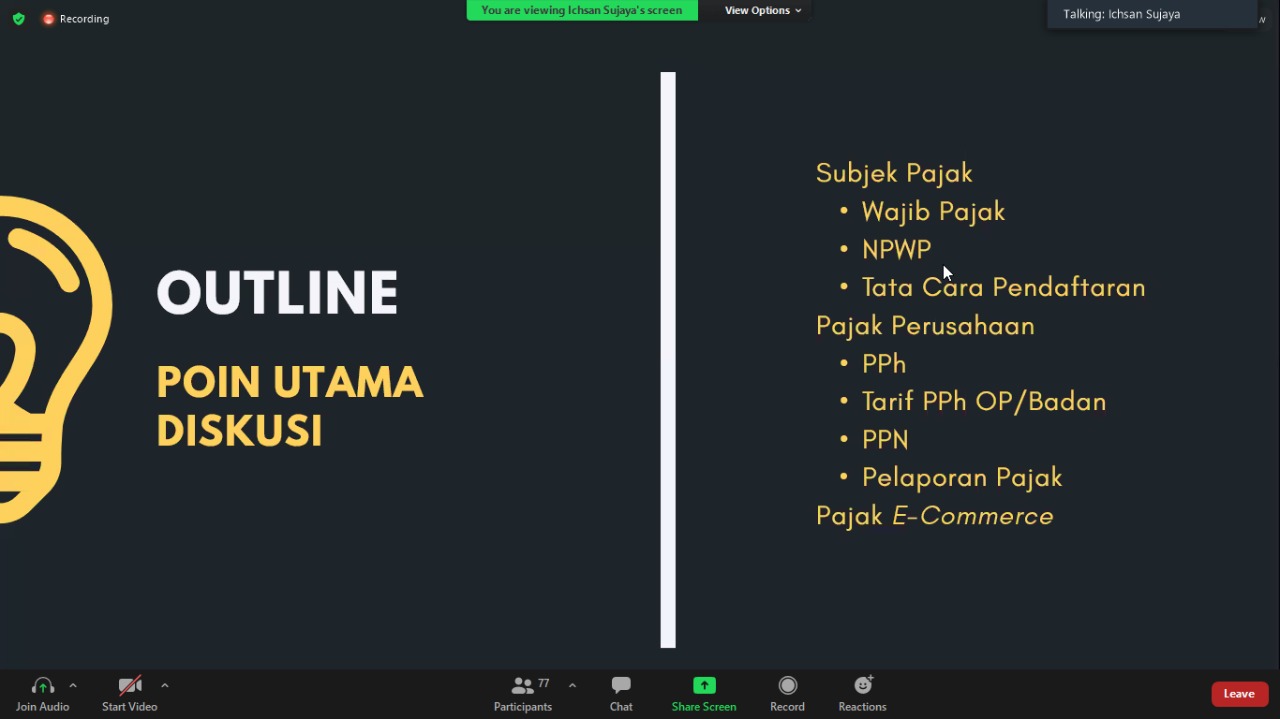One of the most important aspects that business stakeholders need to know when running a business is taxes. Paying taxes is an obligation carried out by every tax subject, including by business entities. Not surprisingly, SBM ITB – Bachelor of Entrepreneurship Study Program, as a program with the prospect of creating future entrepreneurs, includes the topic of taxation in the Business Contract and Law System course.

Ichsan opened the lecture by explaining the role of taxes in the context of Indonesia. In 2021 alone, it was noted that 83% of the sources of funds for the Anggaran Pendapatan dan Belanja Negara (APBN) came from taxes. Considering the large percentage, tax subjects need to realize the importance of paying taxes to maintain the whole country’s stability. Reporting from https://www.kemenkeu.go.id/allocationpajakmu, some examples of tax expenditure posts include transfer-to-regions, public services, defense, order and security, economic assistance, environmental protection, housing, and public facilities, health, tourism, religion, education, and social protection.


In addition to individuals (individuals), taxpayers can also be in the form of a certain organizational entity. An Organization’s NPWP can be made by attaching three documents:
- Deed of Establishment: Photocopy of the deed of establishment or corporate establishment document and its amendments, for domestic corporate taxpayers,
- Letter of Appointment: Photocopy of certificate of appointment from the head office, for permanent establishments or representative offices of foreign companies,
- KTP and NPWP of the Management as documents that show the identity of one of the Board of Directors.
Furthermore, NPWP can also be registered online in this digital era by accessing ereg.pajak.go.id/.
One form of entity that is the subject of a taxpayer is a company. Therefore, the government issued its regulations governing corporate tax. Corporate tax can be divided into three types:
- Corporate Income Tax: paid directly by the company (PPh 25, PPh 29, PPh Final PP 23) and withheld by other parties (final/non-final PPh 22, PPh 23),
- Obligation to Withhold Party Tax Others: taxes on income received by other parties (PPh 21, PPh 23, PPh 26) and PPN (taxes on the delivery of taxable goods/services),
- Other taxes: PBB (PBB P2 managed by DJP, City and Village PBB managed by local government), Stamp Duty, and Local Taxes.
According to PPh Final PP 23/2018, Individuals have a tax period of seven years, while Business Entities like PT, with a term of 3 years, and CV, Firm, and Koperasi with a period of four years. Regarding income tax (PPH), business entities are subject to a tariff of 22%, except for MSME business actors in the form of domestic entities, which are given an incentive to reduce tariffs by 50% as stipulated in Pasal 31E.
In addition to PPH, business entities are also related to Value Added Tax (PPN). By definition, PPN is a levy imposed on the sale and purchase of goods and services by individual taxpayers or corporate taxpayers who have become Taxable Entrepreneurs (PKP). So, it is the Merchants/Sellers who are obliged to collect, deposit and report PPN. However, the party who is obliged to pay PPN is the end consumer.
Ichsan also discussed interesting topics related to taxes imposed on e-commerce (digital) platforms. The history of e-commerce taxes in Indonesia began with the issuance of Surat Edaran Direktur Jenderal Pajak Nomor: SE-62/PJ/2013 concerning the Affirmation of Tax Provisions on E-Commerce Transactions. Furthermore, in PMK 48/PMK.03/2020, it is explained that digital goods and services that are subject to levies are services of movie streaming, music streaming, objects in online games, applications, and paid video calls service.
As closure, Ichsan gave ‘the do and don’t’ for students related to tax handling. He advocated tax planning, a taxpayer’s attempt to obtain tax savings through the procedure of tax avoidance, systematically in line with applicable tax law. In addition, we also need to avoid tax evasion (fraud), the intention to avoid payment of tax payable by withholding data and facts deliberately from the tax authorities, which is illegal.




